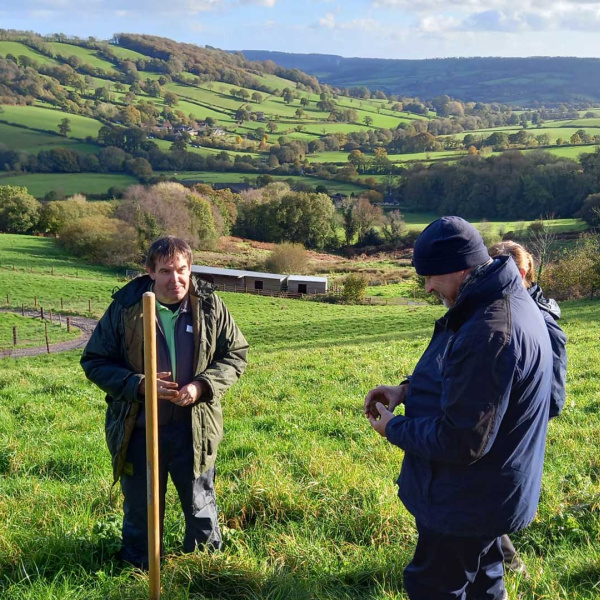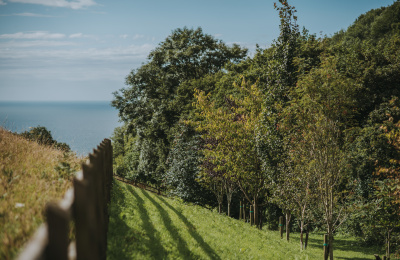At The Donkey Sanctuary, we recognise the importance of improving the quality and structure of our soil. Not only does this support a robust ecosystem, but healthy soil also helps create the best environment for our resident herds.
Soil is a vital but finite resource across the globe, and to recognise its importance World Soil Day (5 December) is dedicated to raising awareness about the significance of soil as a critical component of the natural environment, as well as raising awareness of its role as a vital resource.
By understanding more about and working to improve the soils across our sanctuaries and farms, we can not only ensure our donkeys benefit from the wider biodiversity it promotes, but we can also find out how well-managed soils can provide a range of benefits to our wider environment.
Our miniature donkeys’ paddock at Beach Boxes on our Sidmouth sanctuary is a great example of how our Ecology and Conservation team have worked with our Farms’ team to help improve the area.
After the small herd had been moved to their new home nearby, the entire paddock was aerated to allow more air, water and nutrients to get into the soil. A seed mix of deep-rooted plants, such as cock’s-foot, yarrow, sheep’s parsley, lucerne and chicory, was introduced, and the pasture was rested for over a year with only light grazing by pairs of donkeys to establish the new seed.
When established, these will help to alleviate soil compaction and provide a range of benefits, including improved soil health, and drought and flood tolerance.
When they return, our miniature donkeys will help play their part too. As they move around, the natural action of their hooves and their foraging behaviour will help disperse seeds, and create space and light for more delicate grasses and less competitive wildflowers to establish, further increasing the future diversity of the area.
In a bid to help us further understand our soils and how we can continue to improve our soil quality, a series of soil workshops for some of our teams and external partners have also been held at several of our East Devon farms.
Alongside soil health, soil protection too is a key part of Defra's 2023 Sustainable Farming Incentive (SFI), and farmers may be eligible to receive payments for documenting the condition of the soil and completing soil testing.
Working in collaboration with Devon-based Business Information Point, the workshops included how to identify soils, assess soil health and condition, steps in how to create or improve a soil management plan, and the measures required by the SFI soil standards.
Dr Marianne McHugh, Agricultural Contracts Manager at the Business Information Point, said: “Soils are a farm’s most valuable asset. Whether you are caring for donkeys or running a commercial farm, healthy soils with good structure, providing spaces for air, water, minerals, and living organisms, are paramount.
“The importance of soils is reflected in Defra's Sustainable Farming Incentive, where farmers can choose from several actions that directly or indirectly benefit soils and in turn store carbon, reduce flooding and increase resilience to climate change.”
Ruth Angell, The Donkey Sanctuary’s Ecology and Conservation Manager, added: “Our donkeys depend on grassland for their food and day-to-day living environment, and they share many needs with the wildlife we encounter on our sanctuary sites.
“We are exploring ways to improve soil health on our sanctuary sites to provide donkeys and wildlife with healthy habitats both now and for the future.”


